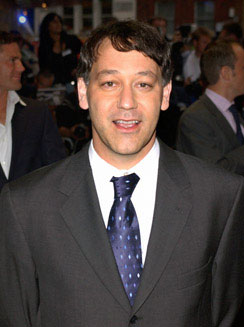 |
| "Based on the corroborating evidence, the court can conclude, beyond the shadow of a doubt, Deckard was not a replicant." |
The United States Supreme Court decided obscenity is indeed a form of free speech, protected by the United States Constitution, therefore laws cannot ban or inhibit the action (sadly, this ruling came three months after a string of fines left comedian Lenny Bruce destitute and ruined.)
The exception to this ruling was hard-core pornography, which could still be banned based on any state's respective laws. When pressed about which obscenities constitute hard-core porn, Justice Stewart replied:
"I know it when I see it."
That one little sentence. That beautiful little get-out-of-jail free card. The line every film, television, and video game blogger owes their reputation to, and the thesis of this particular entry.
It's October, so what better time to talk about horror films? But what exactly is a horror film? How can one exactly declare what is and what is not a horror film?
Let's start with the empirical definition from Wikipedia:
"Horror fiction is a genre of media, which is intended to, or has the capacity to frighten its audience, scare or startle viewers/readers by inducing feelings of horror and terror. It creates an eerie and frightening atmosphere."
Well, that's pretty conclusive, isn't it? Horror movies are movies that frighten the viewer.
 |
| However feeble the attempt. |
But what is fear? Isn't fear subjective? Doesn't everybody have one or two irrational phobias? Lots of people will panic when they find a spider, others keep them as pets. Some people are frightened by thunder, some consider it a welcome sign of April. Fear of clowns used to be considered an odd fear, but the phobia has grown exponentially; it's a wonder anybody still associates them with happiness. I knew a girl in college who was absolutely terrified of the Care Bears. Yours truly has an unexplained aversion to flowers.
 |
| Oh God, they're getting smarter! |
So what makes something frightening? Further down the Wikipedia page we go:
"Horror films often feature scenes that startle the viewer; the macabre and the supernatural are frequent themes. Thus they may overlap with the fantasy, supernatural, and thriller genres."
That certainly helps: Horror films could include some things, and might easily be confused with other things.
What was that quote I mentioned earlier? "I know it when I see it."
That's right. If you want to identify a horror flick, you can't set up a list of qualifiers and regulations. You just have to look at it, and either accept it or reject it.
Is Silence of the Lambs a horror film? I'd say so. How about Se7en? Sure. Both these films are grounded in reality, and are a departure from the ghosts and boogeymen of other horror flicks, but they still scare. They still frighten.
And what of something like Jurassic Park? I consider that a horror movie as well. It may be a thriller first, but the dinosaurs create a distinct ability to frighten. Being hunted is essentially the same as being chased. And what horror flick doesn't have one or two chase scenes?
How's about Ghostbusters? It's getting into a gray area, but I'd say so. It's a horror-comedy. And what's the first word of horror-comedy? Just because the characters makes light of the subject, it doesn't invalidate the scary atmosphere and storyline.
Then how about Twister? Here's where I draw the line. As mentioned, horror is subjective, but its intent must clearly be demonstrated by the filmmaker. Thrillers often contain moments of peril and danger, but an evocation of the fight or flight response is a standard side-effect of any action/adventure/thriller. So no, it's not a horror film.
I was inspired to make this post after various claims of purported film fans claiming they "don't like scary movies." Don't outright declare your dissatisfaction outright. Horror movies are as wide and varied as comedies and romances. Spooks and spectres are all around the world of film, be they splatterfests, psychlogical, slashers, creature features or gothic romances. You may claim you don't like horror films, but I guaranteee there's one out there you'll enjoy. You'll know it when you see it.





